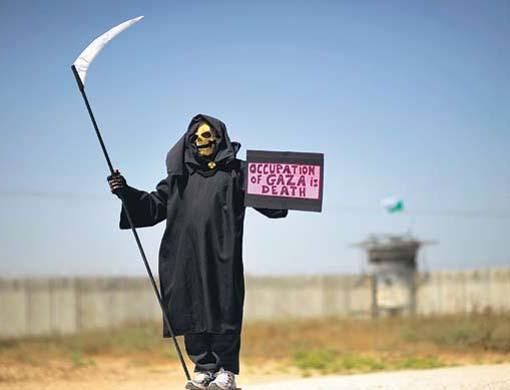Gaza City: A veteran United Nations war crimes investigator acknowledged his probe of possible war crimes by Israel and Hamas - which included interviewing dozens of victims and poring through the files of human rights groups - is unlikely to lead to prosecutions.
Israel has refused to cooperate, depriving Richard Goldstone's team access to military sources and victims of Hamas rockets.
And Hamas security officers often accompanied his team during their five-day trip to Gaza last week, raising questions about the ability of witnesses to freely describe the resistance group's actions.
But the chief barrier remains the lack of a court with jurisdiction to hear any resulting cases stemming from the investigation into Israel's three-week invasion of Gaza which ended in January and was purportedly aimed at putting an end to Hamas rocket fire into southern Israel.
"From a practical political point of view, I wish I could be optimistic," Goldstone said, citing the legal and political barriers to war crimes trials.
Still, Goldstone hopes his group's report - due in September - will spur action by other UN bodies and foreign governments.
Goldstone, a South African judge who prosecuted war crimes in the former Yugoslavia and Rwanda, refused to comment on the investigation's content.
In Gaza, Goldstone's 15-member team met with Hamas and UN officials, collected reports from Palestinian human rights groups and interviewed dozens of survivors.
Among them was a man who told the investigators how he watched Israeli soldiers shoot his mother and sister dead as they fled their home waving white flags. But he, too, doubted he would see justice.
"The committee was just like all the others who have come," said 46-year-old Majid Hajjaj. "There are lots of reports written, but they're nothing more than ink on paper."
The UN team also stepped through the shrapnel-peppered doorway of a mosque where an Israeli missile strike killed 16 people, witnesses said.
During the war, Israel accused Hamas of hiding weapons in mosques. Witnesses said no weapons or resistance fighters were present.
They inspected holes in the street near a UN school where Israeli artillery killed 42 people, and visited the charred skeleton of a hospital torched by Israeli shells.
And they visited the Samouni family, whose members say they took refuge on Israeli soldiers' orders in a house that was then shelled, killing 21 people.
Israel's refusal to cooperate meant that Goldstone - a Jew with close ties to the Jewish state - had to enter Gaza via Egypt.
When asked if the team met with Hamas fighters, team member Hina Jilani declined to comment, but said Hamas had been "very cooperative".
A Hamas official, Ahmad Yousuf, said he hoped the group's report would be "like ammunition in the hands of the people who are willing to sue Israeli war criminals".












